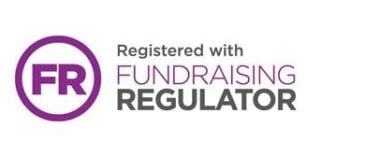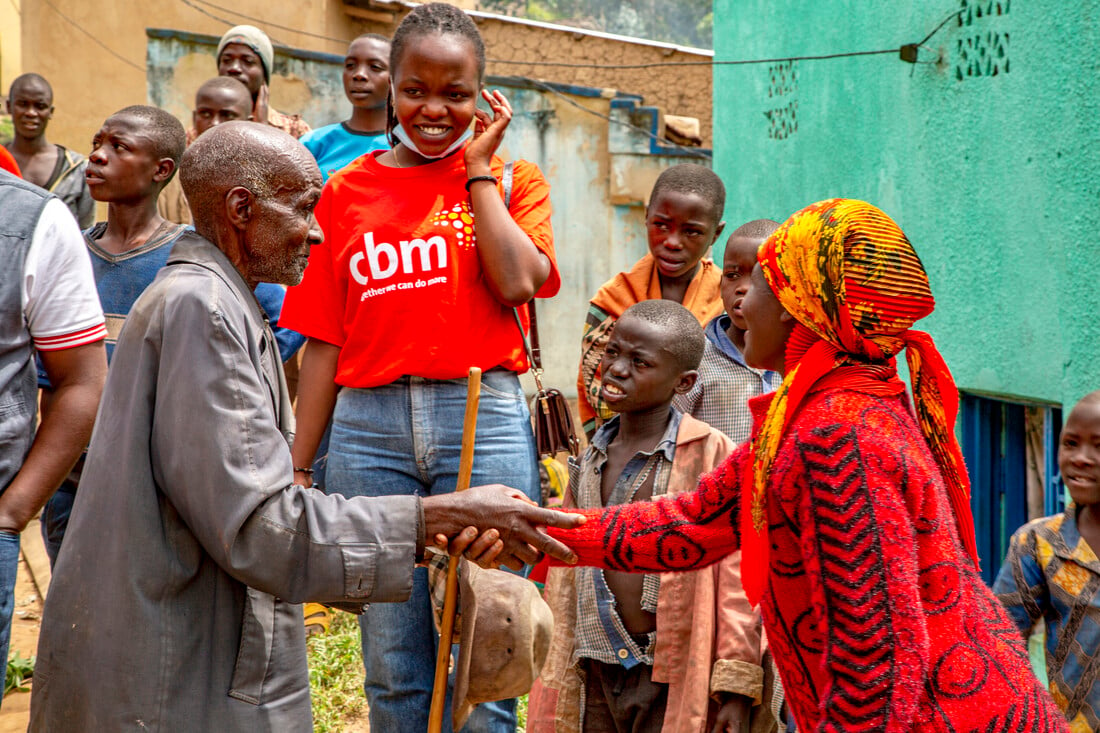You, our incredible supporters, make our life-changing work possible. Your donation, whatever size, will go to work as quickly as possible to where it will have the greatest impact in transforming lives and helping to build futures.
We promise to always:
- Be open and transparent about where your support goes and to keep you updated on the people, families and communities whose lives you are helping to transform. Find out more about how your donations are spent and read our latest annual report here.
- Treat your information as confidential, treat your data safely and securely, and respect your privacy. You can find out more in our Privacy Policy
- Be polite, respectful and open in all our communications with you. We will respond to your feedback and enquiries within 2 working days and follow up and investigate any complaints within 10 working days. Find out how to make a complaint here.
What is this Policy about?
Alongside our overseas partners and project participants, CBM UK supporters play a huge role in what we are able to achieve, and whether through donating, prayer, fundraising, volunteering, or attending and delivering events, our aim is for all interactions and long-term relations with existing and potential supporters to be a positive and balanced experience.
This policy aims to ensure that all CBM UK’s fundraising and communications are carried out in a way that is responsible and fair and, in line with our values, we are committed to treating all people in a way that is inclusive, non-discriminatory, and transparent. This policy is a guide for staff, volunteers, trustees and other representatives of CBM UK, on how to identify someone in a vulnerable situation, and outlines the actions taken in these circumstances.
When is a person classed as being in a vulnerable circumstance?
We consider a person to be in a vulnerable circumstance if they find it difficult to make an informed decision about the choices offered to them. A number of factors can contribute to a person experiencing vulnerable circumstances, and although not exhaustive, these may include a person:
- who is living with dementia
- living with a significant and impairing physical or sensory disability
- affected by poor mental health or anxiety
- experiencing extreme financial difficulties
- having experienced a recent bereavement
- who has difficulty understanding the language being used
- under the influence of drugs or alcohol
- who finds the subject matter of the contact distressing.
How do we identify vulnerable circumstances?
The following are examples of how we may identify someone as being in a vulnerable situation. The person may:
- ask for questions or for information to be repeated several times
- ask us to speak more slowly
- take a long time to respond, find it difficult to respond or respond in an inappropriate manner
- ask several times who the caller is
- be unable to hear or understand what is being said
- ask irrelevant or unrelated questions
- wander off the subject
- Not be able to remember their address or personal details
- respond in an irrational way to simple points
- have forgotten that they have given a donation or claim no knowledge of CBM
- mistake the caller for someone else
- repeat questions they have already asked
- display signs of forgetfulness
- be unable to read or understand the information provided to them
- explain that someone else deals with their finances or personal matters
- display signs of ill health, e.g. breathlessness or discomfort.
Sometimes we may be informed of vulnerability through written communication:
- an individual may email or write to indicate they are permanently in a vulnerable situation
- a person’s family member or carer may indicate they are in a vulnerable circumstance.
Our approach to handling vulnerability
We try to use our best judgement where we have grounds to believe that a person is in a vulnerable situation to ensure we communicate with them in a way that meets their needs, and we aim to ensure a supporter is fully informed and supported to make a decision that is right for them. To do this we may respond in the following appropriate ways:
- Being patient and not rushing a conversation.
- ask the individual if they would prefer another method of communication
- ask if they need to speak to anyone else or need more time in order to make a decision.
- check their understanding of what they have agreed to. It may be appropriate to repeat what they have agreed to, and we may offer to write to or email them to confirm what they have decided.
- decide that it is inappropriate to continue with a conversation, aiming to end the interaction in a positive and pleasant manner.
Other important points
- CBM UK does not identify vulnerable people based on age, disability or any other social indicator, but deals with each person on an individual basis. We try to ensure every person is given the appropriate information so they can make an informed decision.
- Should CBM UK receive information about a supporter’s vulnerability from a third party, we may not act on any request to alter the supporter’s preferences unless the third party can provide evidence that he or she has the authority to act on behalf of the supporter.
- When we have been given information about a person or have identified a vulnerable situation, we act upon this and ascertain what kind of communication, if any, is acceptable. Our records are then updated to reflect this.
Related Policies: Safeguarding Policy
CBM UK is committed to ensuring the safety and protection of everyone we work with. Protecting children, young people and vulnerable adults from harm is central to achieving our goal of improving the quality of life of persons with disabilities in the poorest communities of the world. Within our Safeguarding Policy we refer to the principles in The Code of Fundraising Practice and the Institute of Fundraising Guidance on Treating Donors Fairly, particularly ensuring that supporters have capacity to make donation decisions, recognising where they should be given extra support and care, and taking extra steps to ensure that data protection legislation is properly complied with. You can download the CBM UK Safeguarding Policy here.
The Code of Fundraising Practice
CBM UK is a member of the Fundraising Regulator and is committed to following the standards set out by the Code of Fundraising Practice. We have also taken guidance from the Chartered Institute of Fundraising document ‘Treating Donors Fairly’ (PDF 2.14mb).

More information
If you would like more information about this policy, please contact CBM UK via email: info@cbmuk.org.uk, or call 01223 484700, or write to: Supporter Relations Team, CBM UK, Munro House, 20 Mercers Row, Cambridge, CB5 8HY.
